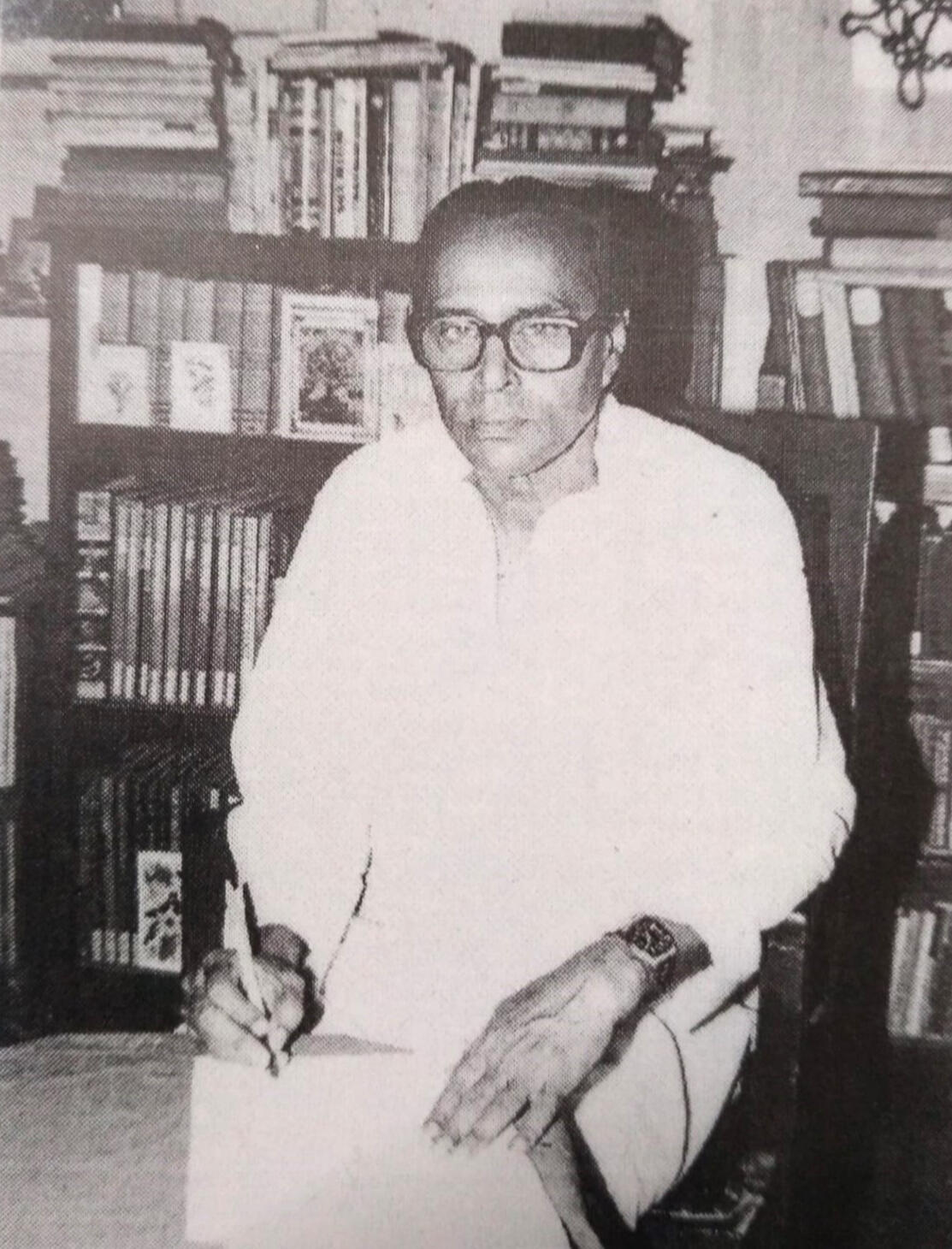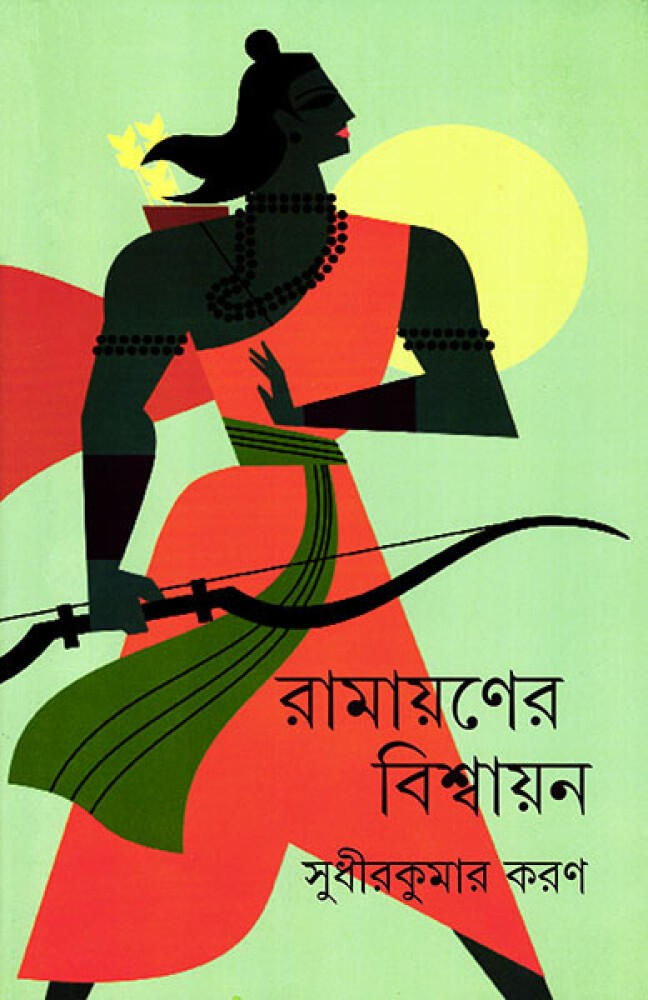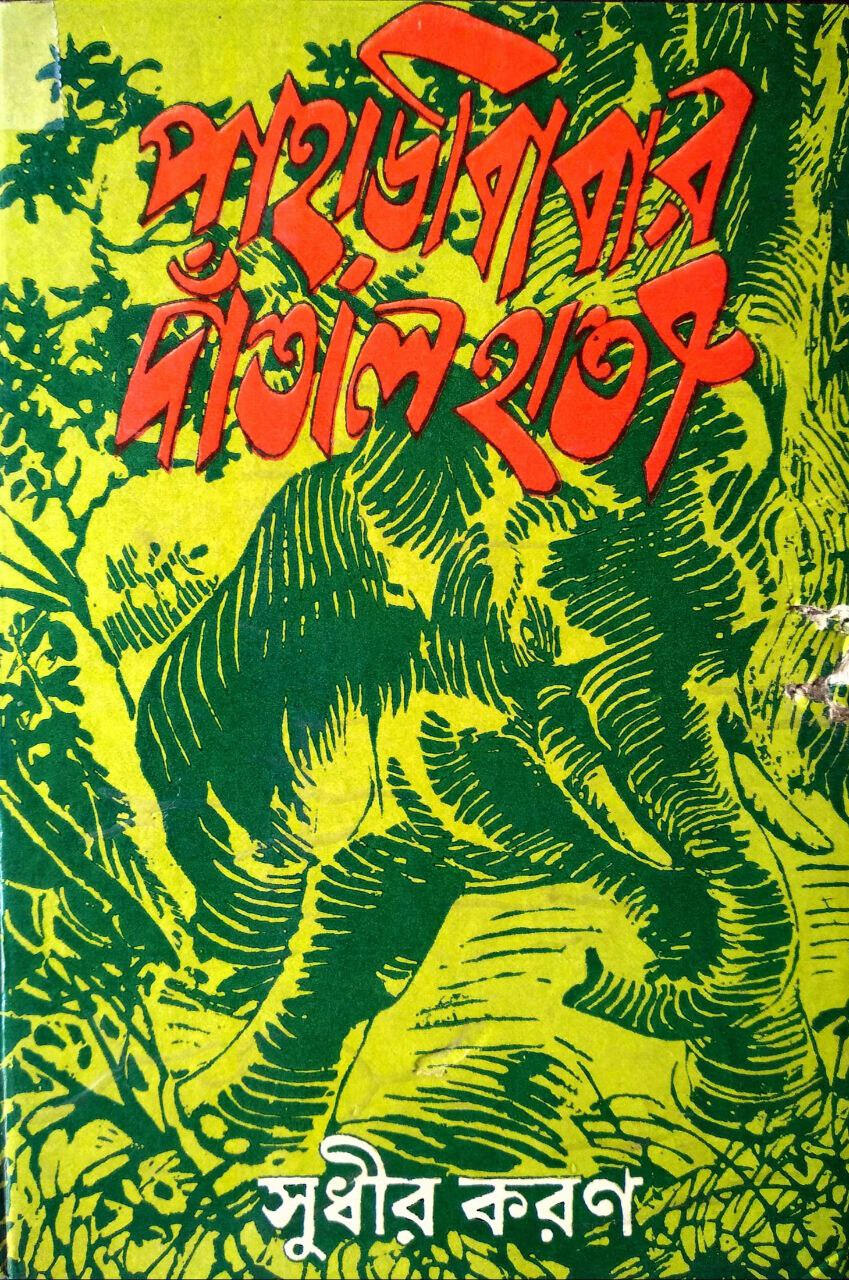Sudhir Kumar Karan
Author & Littérateur

Sudhir Kumar Karan (Bengali: সুধীর কুমার করণ) (February 2, 1924 - November 7, 2014) is a prominent author, linguist and literary figure renowned for his contributions to the Bengali language and Folklore of Bengal & Jharkhand. He has left an indelible mark on Bengali literature through a repertoire of notable works.
PUBLISHED BOOKS
POETRY
| Title | Year |
|---|---|
| Raktausha | 1948 |
| Madhyam Shatak | 1953 |
| Ararnyer Bikalpe | 1973 |
| Neelpadma | 1995 |
FOLKLORE/LINGUISTICS/HISTORICAL
| Title | Year |
|---|---|
| Rukmini Bibi (Short story collection) | 1959 |
| Dhanjhuri Paharer Payra Basa | 1967 |
| Lokayat Rabindranath | 1966 |
| Pahari Babar Dantalo Hati | 1989 |
| Loksahitye Ishop | 1992 |
| South Western Bengali | 1992 |
| Biswa Lokkathar Ruprekha | 1993 |
| Thag Bardhan | 1993 |
| Biswa Lokkatha Somikkha | 2000 |
| Aranya Purush | 2003 |
| Sonali Pasam | 2004 |
| Thus Flows The Ganges | 2004 |
| Sheal Morog Aar Beral | 2006 |
| Alexander, The Great | 2007 |
| Birshikari Mogambo | 2008 |
| Lokayatik | 2008 |
| Bakpati Rabindranath | 2009 |
| Bismoy Bhumi Jharkhand | 2010 |
| Social And Cultural Life Of Jharkhand | 2011 |
| Shaotal Sankristir Ruprekha | 2020 |
| Ishoper Golpo | |
| Samudra Samrat | |
| Jain Ramayan |
EDITOR
Falguni (1946) - Hand written bengali magazine, in Ranchi, Bihar (now Jharkhand)
Falguni (1948) in printed format in from Purulia, West Bengal
Madhuparni (1965) from Balurghat, West Dinajpur, West Bengal
Parnika (1969) from Suri, Birbhum, West Bengal
INTRODUCTIONSudhir Kumar Karan (Bengali: সুধীর কুমার করণ) (February 2, 1924 - November 7, 2014) is a prominent author, linguist and literary figure renowned for his contributions to the Bengali language and Folklore of Bengal & Jharkhand. He has left an indelible mark on Bengali literature through a repertoire of notable works. Among his most acclaimed literary creations are Sahityer Biswayan, Thus Flows The Ganges, Simanta Banglar Lokeyan, Biswa Lok-Katha Samiksha, Lokayat Rabindranath, South Western Bengali, Tales of Jharkhand, etc.These works showcase Karan's deep engagement with the cultural, social, and geographical landscapes of the region, weaving narratives that resonate with readers across generations. He was the first PhD graduate from Calcutta University to specialize in Folklore, a significant milestone in the institution's academic history.
EARLY LIFE & EDUCATIONDr. Sudhir Kumar Karan, a distinguished scholar and educator, was born in the quaint village of Ramchandrapur, situated on the border of West Bengal and Bihar (now Jharkhand). He was a long term resident of Suri town of Birbhum district. His academic journey began at the village school. He completed his B.A. degree in Bengali Literature from Ranchi University in 1948 before venturing into the realm of teaching.In 1950, Sudhir Kumar Karan entered Calcutta University, where he pursued his M.A. degree in Bengali Literature. During this period, he was mentored by eminent professors such as Sunithikumar Chattopadhyay, Sukumar Sen, Srikumar Bandyopadhyay, Shasibhushan Dasgupta, Vishwapati Chowdhury, and Pramathanath Bishi. It was during his time at the university that he developed a keen interest in Communism, setting the stage for his future political engagement.
CAREERLiterary Works
Dr. Karan has made remarkable contributions to folklore, linguistics and historical books. His extensive body of work, includes over 30 novels, numerous short stories and poetry written primarily in Bengali and English.His first book, Raktausha (রক্তusha) (a collection of bengali poems) was published by Falguni Sangha, Ranchi in 1948. His body of work includes Simanta Banglar Lokeyan, Biswa Lok-Katha Samiksha, Lokayatik, Shaotal Sankristir Ruprekha, Birshikari Mogambo, Lokayat Rabindranath, South Western Bengali, Thus Flows The Ganges, Tales of Jharkhand, Sahityer Biswayan, Bismoy Bhumi Jharkhand, Pahari Babar Dantalo Hati, Neelpadma, Ramayaner Biswayan, Sheal Morog Aar Beral, Social And Cultural Life Of Jharkhand, Aranya Purush, Biswa Lokkathar Ruprekha, Bakpati Rabindranath.He has explored Bengali folklore, delving into its intricacies and preserving its essence for generations to come. His writings reflect a deep understanding of the cultural nuances embedded within the language, offering insights into the social fabric and historical context of the Bengal and Jharkhand region. Karan's dedication to literature has not only enriched Bengali storytelling but also advanced the study of linguistics, inspiring scholars and readers alike with his profound insights and captivating narratives.Renowned for his deep insights into the folklore and tribal communities of Bengal, Sudhir Kumar Karan stands as a beacon in the realm of anthropological literature. With an exquisite blend of scholarly rigor and empathetic storytelling, Karan's works illuminate the rich tapestry of Bengal's indigenous cultures, delving into their myths, rituals, and oral traditions. Through his extensive fieldwork and meticulous research, he captured the essence of these communities, offering readers a nuanced understanding of their customs and beliefs.Social Activity
In 1954, Sudhir Kumar Karan embarked on his teaching career at Pancharul Srihari Vidya Mandir in Howrah. However, his commitment to the teachers' movement led to his first imprisonment during this period. Subsequently, he taught briefly at Ranchi College and Santal Pargana Dumka S.P. College, facing dismissal due to political reasons.His meeting with Saumyendranath Tagore was a pivotal moment that sparked his involvement in political endeavors within rural communities. In 1964, he achieved a milestone by earning Calcutta University's first doctorate in folklore studies, under the guidance of Acharya Sukumar Sen a testament to his dedication to academic pursuits. Under the mentorship of Acharya Sunithikumar Chattopadhyay, he conducted research in the field of linguistics.Sudhir Kumar Karan began his professional journey as a Lecturer in English Literature at Jagannath Kishor College in Purulia, West Bengal, in 1956. Subsequently, he assumed the position of Principal at Balurghat College in 1965, followed by his tenure as Principal at Suri Vidyasagar College (near Shatiniketan) in 1969, where he eventually retired in 1983. In addition to his administrative roles, he made significant contributions to linguistic research.After his time at Suri Vidyasagar College, he joined Burdwan University as a Reader, after which he joined as a Senior Research Fellow at the Asiatic Society in Kolkata.As a fellow at the Asiatic Society, he compiled a comprehensive dictionary of Western Bengali and Jharkhandi dialect - Simantararhi-o-Jharkhandi Banglar Gramin Sabdakosa in 1995. He was honored as an Honorary Fellow of the Asiatic Society.In 1995, in acknowledgment of his invaluable contributions to folk culture, the state government bestowed upon him the prestigious Dinesh Chandra Sen Award.



